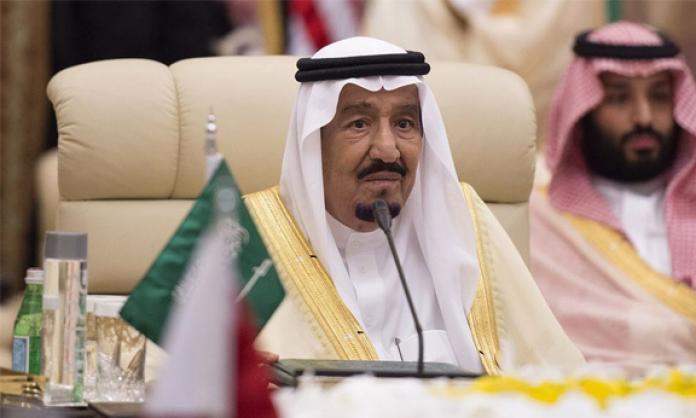Political tensions in the Middle East have risen yet again after Saudi Arabia and its allies imposed diplomatic sanctions and a harsh economic siege on Qatar. While the Saudis claim that the trigger was Qatari support for terrorism, the move reflects a series of strategic disputes produced by the Arab revolutions of 2011, the resurgence of Iran as a regional power and the relative decline of US hegemony.
The countries have adopted divergent attitudes to these unfolding events, Saudi Arabia openly seeking to restore the old order and Qatar choosing instead to shape the transition through its influence over Islamist forces.
The move to isolate Qatar has involved forced expulsions of its expats from participating Gulf countries, travel bans and a severing of transport links, which has severely impacted the country’s export capacity. The Saudis have also excluded Qatar from the murderous war on Yemen, and have imposed a blockade on all imports to the country through the land border with Saudi Arabia. This is a massive blow to the economy of the smaller nation: according to the Financial Times, 40 percent of Qatar’s non-oil imports enter in this way.
A number of countries have been brought into the dispute, the United Arab Emirates, Egypt and Bahrain joining in on the Saudi side.
Saudi Arabia’s regional rivals have responded to this offensive by offering assistance to Qatar. The Turkish government, a fellow supporter of Hamas and the Muslim Brotherhood, passed emergency legislation to increase significantly its military presence in Qatar. It’s also dispatched aid in the form of milk, yoghurt and other perishable foodstuffs. Iran has not intervened militarily but has sent food and water to help undermine the siege.
Qatar’s foreign policy
Qatar has played a disproportionate role in the Middle East in recent years, despite its small size. Like the Saudis and other Gulf states, the country’s monarchy has deep pockets – a consequence of having a tiny population and the largest natural gas reserves on the planet. This provides the regime with a ready supply of cash, which it uses to fund a range of groups, most notably the Muslim Brotherhood and its related organisations.
The point of this was to give the country some flexibility and strategic independence from its more populous neighbours, especially Saudi Arabia. For the same reason, before the Arab Spring, Qatar moved to deepen ties with Iran, Hezbollah and Syria. At the same time, it had welcomed the establishment of a large US airbase in the country, staffed by 10,000 soldiers.
As part of this project, it set up Al Jazeera in 1996, a widely respected and well-staffed media network with a strong online and TV presence. In 2006, it launched an English language program, hoping to shape global narratives about the region. The station is by no means independent from the regime and operates as an instrument of soft power. Despite this, it is a comparatively hard-hitting news source in a region where the media tends to be an extension of authoritarian regimes, churning out articles that make the crassest of Murdoch’s publications seem sophisticated and even-handed.
When the Arab Spring broke out in 2011, Al Jazeera became synonymous with the uprisings, its coverage tending to be sympathetic to the demands of the movement. Even then, there was the important exception of Bahrain, which until recently was an ally of the Qatari monarchy. One analyst quoted by Reuters suggested, “Al Jazeera does not allow one view that is critical of Bahraini repression to appear on the air. The GCC [Gulf Cooperation Council] has closed ranks and Qatar may be rewarded”.
As the revolutions began toppling dictatorships and calling for real change, Qatar threw itself into the fray, providing substantial ideological and financial support for organisations on the ground, including the Muslim Brotherhood in Egypt, Ennahda in Tunisia and various Islamist factions in Syria. Its goal was to topple the old regimes – which in most cases were closely allied to the Saudis – but preserve social and economic relations as they were; in other words, aiming for neoliberal and socially conservative governments more aligned with Qatar.
The Saudi agenda
All of this activity has put Qatar at odds with the Saudis. As the major economic force in the region, Saudi Arabia has long used its oil wealth to prop up existing networks of capitalist domination.
This began with attempts to undermine the nationalist movements that exploded in the 1940s, using aid to encourage moderation and compliance with the US-Israeli agendas. It also funded Islamist forces of various stripes, including, ironically enough, the Muslim Brotherhood, which it supported until the First Gulf War. The split occurred because the Brotherhood baulked at joining the Saudis in endorsing US intervention into Iraq. When the Saudis cut ties with the organisation, Qatar took up the slack.
Tensions arising from this relationship have simmered for many years. They peaked in 2014, just a few months after the Muslim Brotherhood’s Mohammed Morsi was overthrown as president of Egypt. Morsi was backed by Turkey and Qatar, and despised by the Saudis; his 2012 election represented the apogee of Qatar’s influence, and his ouster was a blow from which it has yet to recover.
The Saudis justify their attack on Qatar on the basis that it supports terrorist organisations, by which they mean groups with agendas that differ from the Saudi-Israeli axis. As well as the Muslim Brotherhood, the Saudis are hostile to Qatar’s alliance with Hamas and Hezbollah, both of which function as rivals to Saudi-backed forces in their respective countries.
They are desperate to crush Hamas in particular, which continues to embarrass the collaborationist and Saudi-backed Palestine Liberation Organisation by offering some resistance to the Israelis, however limited. Along with the strong support for Palestinian liberation across the region, this resistance makes it difficult for Arab states to develop deeper ties with Israel, something that the Saudis have been keen on for decades.
The core feature of Saudi policy at the moment, however, is rivalry with Iran. The Iranian government benefited from the collapse of the Iraqi state following the US intervention, positioning itself as the key prop of the sectarian Shi’ite governing party, Dawa. With Hezbollah’s development into a ruling party in Lebanon, the nuclear deal with the US and the likely survival of the Syrian regime, Iran’s geopolitical fortunes have improved substantially.
This is of deep concern to the Saudis; their attack on Qatar is partly motivated by a desire to force it more clearly into the anti-Iranian camp, and partly a shot over the Iranian government’s bow. Bending Qatar to their will – including the further tempering of Al-Jazeera coverage of regional events – is crucial to this multifaceted attempt to push back against Iran.
U.S. policy
The US has presented two fundamentally conflicting responses to these events. President Trump started out by giving the whole operation his personal blessing. The Guardian reported that Trump had “taken credit” for the whole thing, based on his extraordinary tweet: “[D]uring my recent trip to the Middle East I stated that there can no longer be funding of Radical Ideology. Leaders pointed to Qatar – Look!”
Representatives of the US establishment have put forward a very different perspective, arguing instead for unity and the need for negotiations. Secretary of state Rex Tillerson has urged the parties to remain united, and that the fight against ISIS is an important point of agreement. This reflects the interests of the US empire, for whose purposes Qatar and Saudi Arabia are meant to be on the same side – the US side.
Underpinning this conflict is the undeniable fact that US hegemony in the region has been weakened. The US system of dominance is in crisis, reflected in the fact that both the Pentagon and the State Department are on the back foot following failed interventions in Afghanistan and Iraq. President Trump wants to resolve the crisis by largely abandoning the US’s current role of global hegemon in favour of a more “transactional” or “America First” approach to politics, in which the only consideration is the immediate interests of US capital.
Regardless of which perspective wins out, no government can feel entirely secure while there are conflicting messages coming from the US. No longer is an alliance with the White House sufficient to guarantee a country’s position in a stable world system. This uncertainty affects all parts of the globe, but in the Middle East especially, where the rupture created by the Arab Spring has multiplied the sense of chaos. As a result, each nation and social group has become more determined to unilaterally secure its narrow economic, political and military interests.
The effect of all this is a highly unstable, multi-polar system of regional rivalry. Saudi Arabia, Iran and Turkey each have ambitions for regional dominance, with Qatar and Egypt playing secondary though important roles. Not to be forgotten is Israel, which, with its highly advanced military-industrial complex and incomparable support from the West, remains the most powerful state in the region. Finally, after years of retreat, Russia is also once again providing countries in the region with an alternative – and arguably more reliable – source of funds, weapons and direct military support.
These states are increasingly prepared to use any tool at their disposal to gain influence. Apart from military and financial means, sectarianism has emerged as an important tactic for social organisation and manipulation used by elites of all sides in this kaleidoscope of counter-revolution. Yet it is not the decisive factor in events, as shown by the support of Shi’ite Iran for Sunni Qatar.
For the time being, the revolutionary process that began six years ago has been defeated, superseded by imperial conflicts between various counter-revolutionary forces (with the significant but only partial exception of Syria). Yet the basis for such a movement continues to exist, social conditions today being worse than they were in 2011. If anything, the feuds between the ruling classes of the region could render them less capable of crushing the revolution next time.











